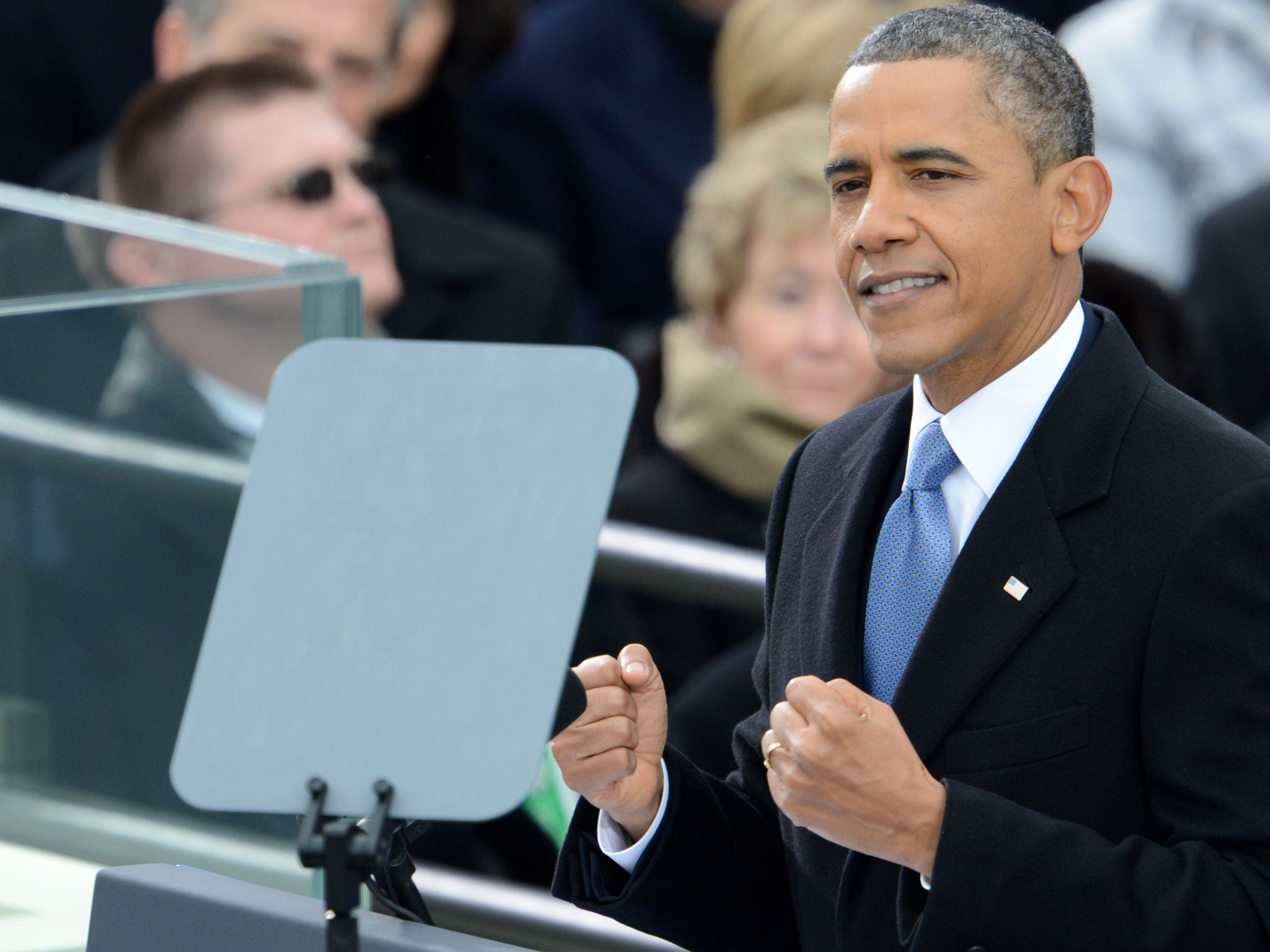Second inaugural addresses: fraught with difficulty and rarely memorable

The second inaugural address has rarely been memorable. Save for Abraham Lincoln’s, which struck a series of soaring notes, including “Fondly do we hope, fervently do we pray, that this mighty source of war may speedily pass away”, they are fraught with difficulty.
This is in sharp contrast to the first, when Presidents have the luxury of a clean slate; the second time round they are often encumbered by the bruising experience of office.
Andrew Jackson, 1833
After facing down South Carolina when it attempted to challenge a federal law on tariffs during his first term, Jackson used his second inaugural speech to reaffirm the importance of the American union, without which, he said, “our independence and liberty would never have been achieved.”
Abraham Lincoln, 1865
Lincoln’s second inaugural address came just before the end of the Civil War, and has become the gold standard for the form. Instead of skirting around the thorny issue of slavery, he spoke candidly about the conflict and its causes, acknowledging, in an address laden with scripture, that “it may seem strange that any men should dare to ask a just God’s assistance in wringing their bread from the sweat of other men’s faces, but let us judge not , that we be not judged.”
Franklin Roosevelt, 1937
Few Presidents had faced as grim a first term as FDR, with economic turmoil dominating the national, and international, agenda. And so he used his second speech to make the case for his solutions. “Old truths have been relearned; untruths have been unlearned. We have always known that heedless self-interest was bad morals; now we know that it is bad economics.”
George W. Bush, 2005
For the last President Bush, terrorism was the defining theme, with the horrific events of September 11, 2001 still fresh in the nation’s mind. And so came a speech that laid out a President’s doctrine for navigating the new, dangerous post-9/11 landscape. “The survival of liberty in our land increasingly depends on the success of liberty in other lands,” he said. “The best hope for peace in our world is the expansion of freedom in all the world.”
Subscribe to Independent Premium to bookmark this article
Want to bookmark your favourite articles and stories to read or reference later? Start your Independent Premium subscription today.

Join our commenting forum
Join thought-provoking conversations, follow other Independent readers and see their replies
Comments